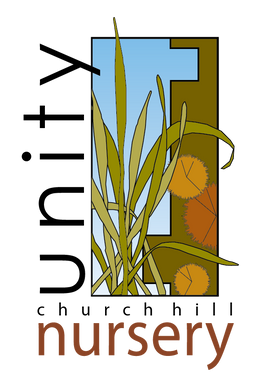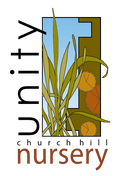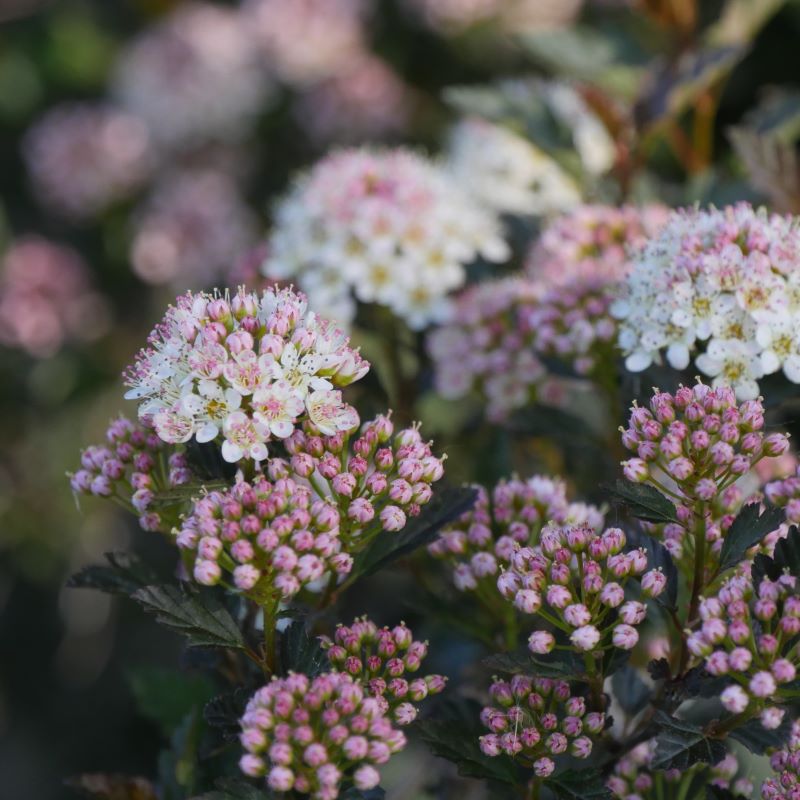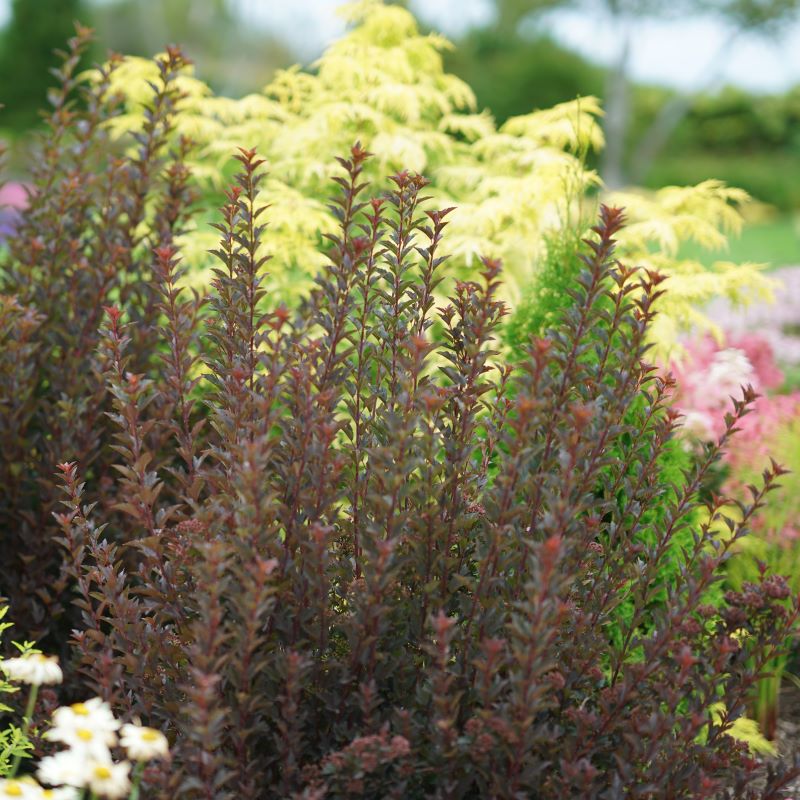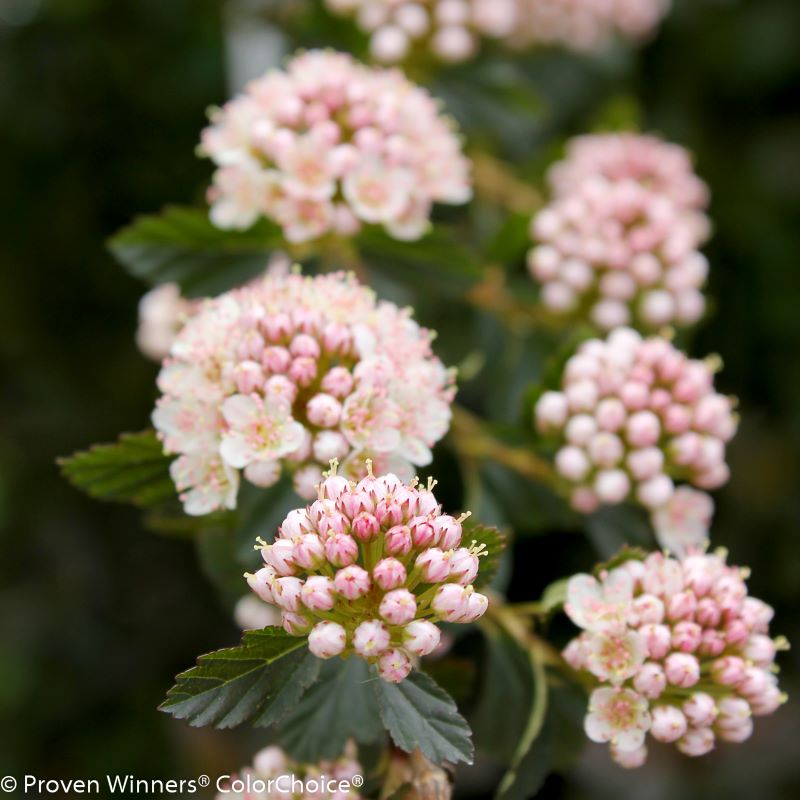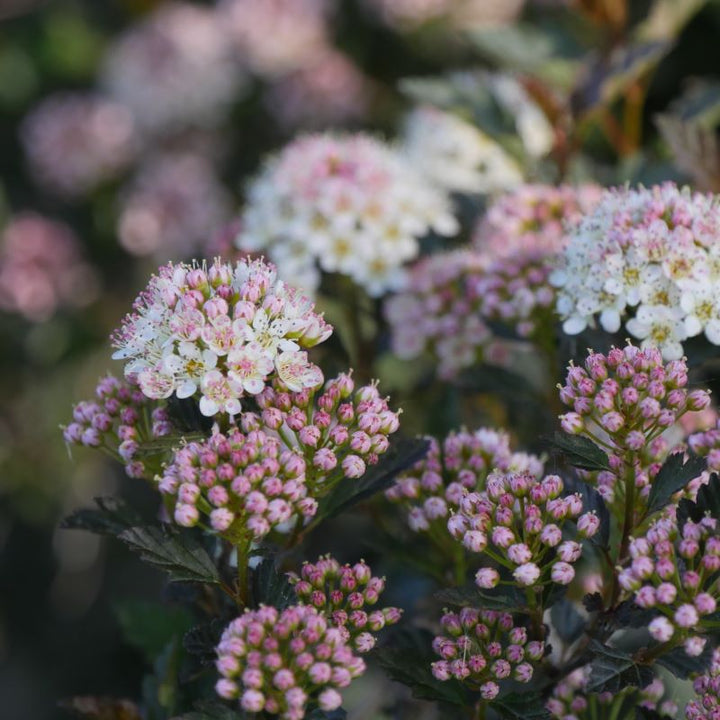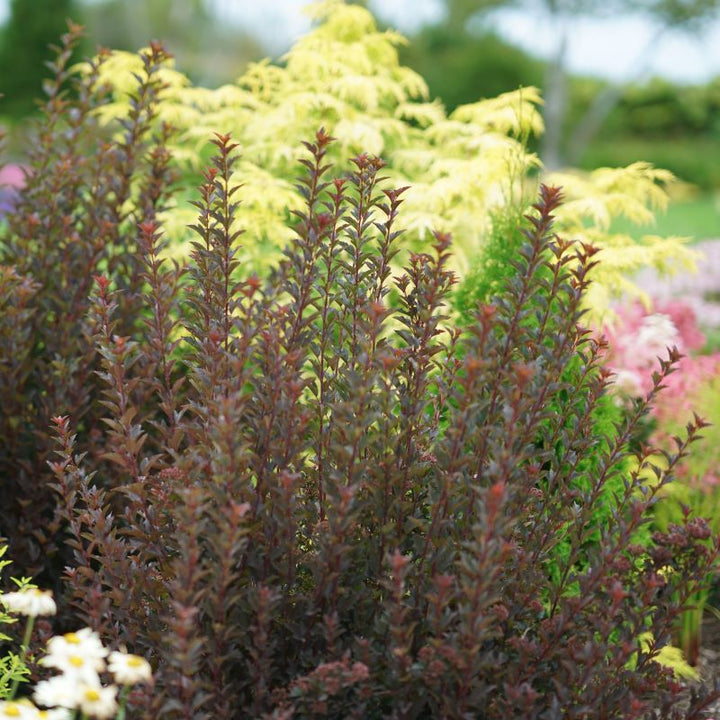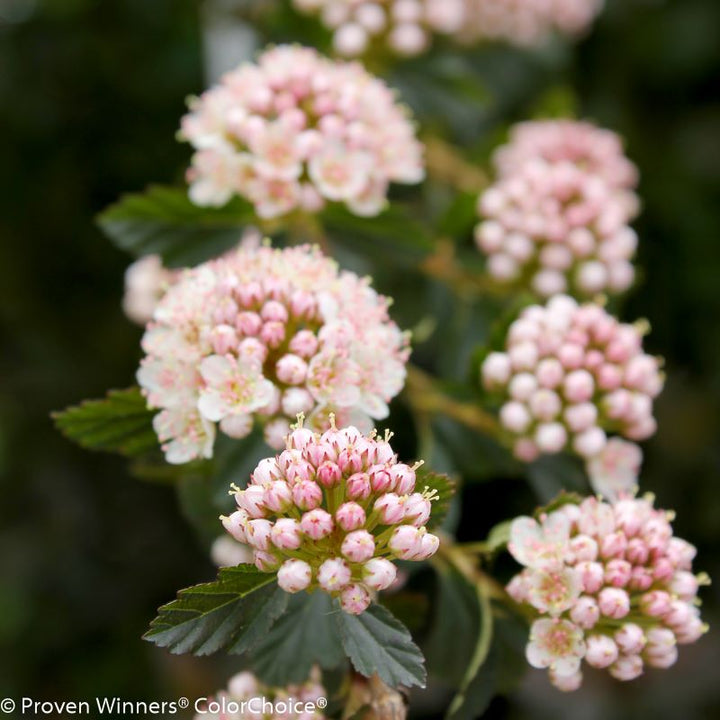Physocarpus opulifolius Tiny Wine® (Ninebark) Unity Grown
- In Stock
- Inventory on the way
Physocarpus opulifolius Tiny Wine® is a multi-color ninebark cultivar noted for its eye-catching foliage, attractive flowers, and low-maintenance, compact habit. Well regarded ornamentally and ecologically for its pink and white pollinator attracting blooms from from late spring to early summer, Tiny Wine® adds additional contrast to any green landscape, with an vase-like habit and a ton of ornamental beauty; early spring foliage starts dark green with tinges of bronzey-orange before turning to deep purple-black by the middle of summer. In the fall, pollinated flowers turn to red, berry-like seed pods, which are attractive to birds, and even after the attractive red autumn foliage has fallen, the intricate branching pattern and unique exfoliating bark that gives the plant its common name can really shine.
As a compact dwarf cultivar, Tiny Wine® typically grows to only around 3-5' tall and slightly more narrow, quite a bit smaller than many other cultivars, and much smaller than the parent species, which can reach 10'. Although the foliage may differ from the straight species, Physocarpus opulifolius Tiny Wine® maintains all the hardiness of the original, and has great tolerance to a wide variety of soil conditions, but grows best in drier sites with full sun. Tiny Wine® can be used as a specimen plant, foundation planting, or as a hedge, thanks to its densely branching nature, and thanks to its compact stature, this cultivar is great for small spaces and container growing too! In addition to its landscape uses, Physocarpus opulifolius Tiny Wine® is an excellent native substitute for the popular but invasive burning bush (Euonymus alatus).
(Photos courtesy of Proven Winners)
